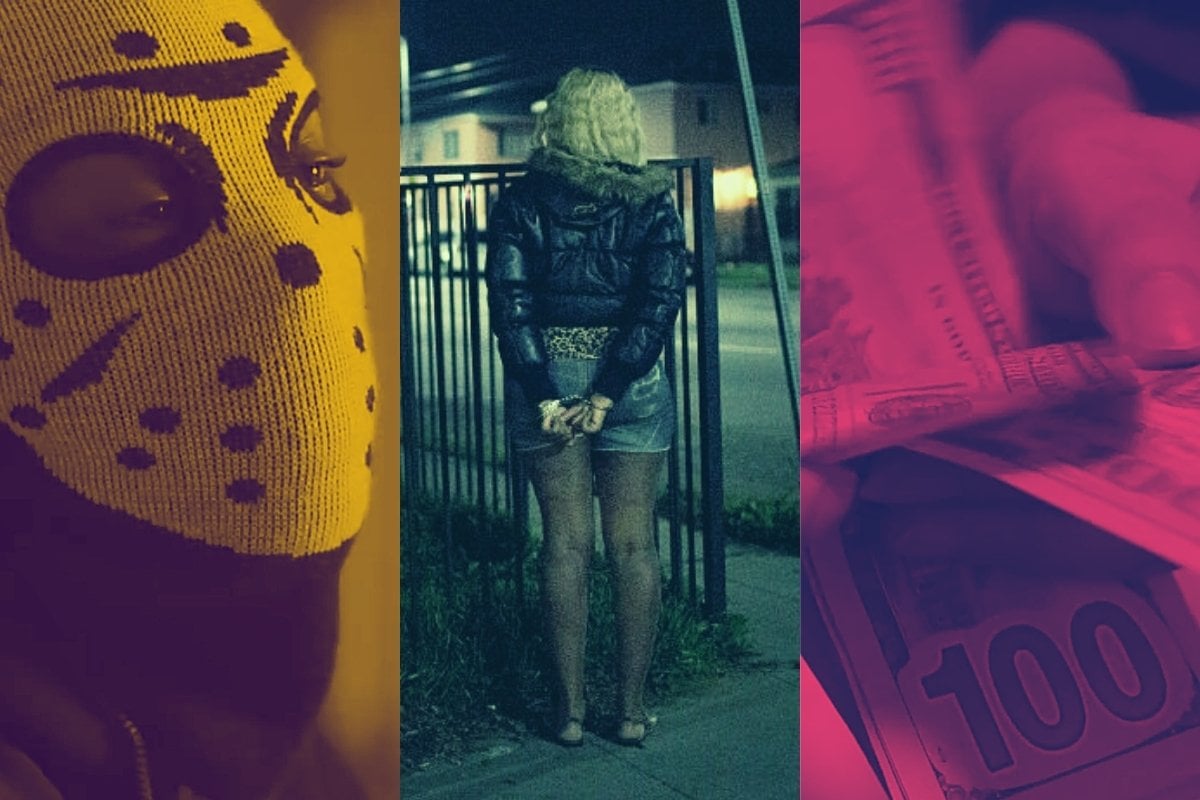
Warning: The following deals with violence and abuse.
In her National Geographic series, Trafficked, investigative journalist Mariana van Zeller managed to wrangle interviews with gun runners, drug cartel members, scammers and fraudsters.
But no underworld figures proved harder to pin down than California's pimps.
These, the Portuguese-born reporter discovered, are people hiding in plain sight. Some stake out the corners of Los Angeles' notorious Figueroa Street, monitoring the women whose bodies they profit from. Others are on Instagram, flaunting their wealth, their recruits and their champagne lifestyle.
"You think of these black markets, in general, as something that happens in the darkest, most secretive corners of our world. And in fact, what we found when we started trying to reach out to pimps was that a lot of them are online. They are advertising their services online, trying to recruit girls to work for them," Mariana told Mamamia's True Crime Conversations podcast.
"And so on Instagram, if you know the secret language that they have, it's not difficult to find pimps. And so we started reaching out to thousands and thousands and thousands of them."
Watch: Trafficked with Mariana van Zeller takes you inside criminal networks from the cocaine trade to sex trafficking. Post continues below.

Top Comments